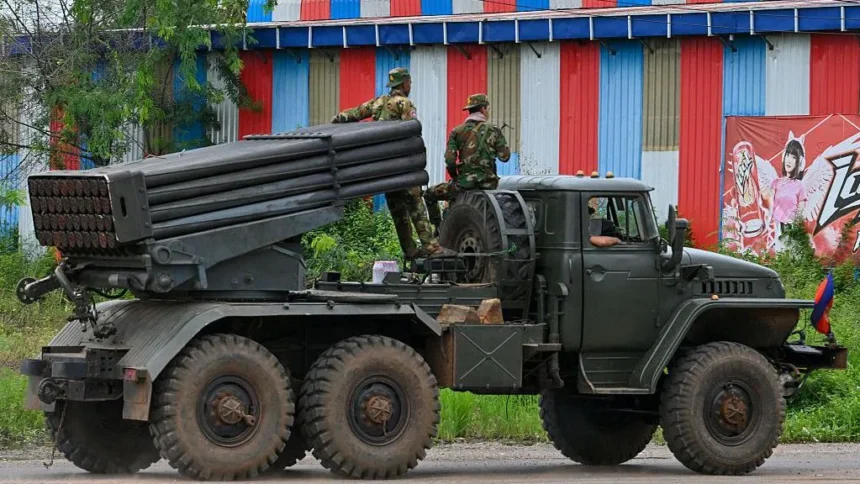Thailand has accused Cambodia of deliberately violating the ceasefire agreement reached on Monday between the two countries, just hours after it came into force. The deal aimed to end fierce border clashes that have killed at least 33 people and forced thousands to flee their homes.
According to the Thai military, its forces ceased fire after midnight, but by Tuesday morning, they were still being fired upon by Cambodian troops at several points along the border. Cambodia’s Ministry of Defense has denied any incident, telling AFP there have been no armed clashes since midnight.
A planned meeting between local commanders, part of the ceasefire deal, has already been postponed twice and now risks being canceled altogether — casting doubt on the truce’s implementation.
Tensions reignited in May, when a Cambodian soldier was killed. Clashes escalated last week when five Thai soldiers were injured by a landmine explosion. In response, Thailand closed several border crossings, expelled Cambodia’s ambassador, and recalled its own envoy from Phnom Penh.
Following a deadly exchange of fire on Thursday, Cambodia launched rocket attacks into Thai territory, killing several civilians. More casualties were reported on both sides in the following days, forcing tens of thousands of residents to evacuate.
Intense fighting, including Thai airstrikes on Cambodian positions, continued until midnight Monday. On Tuesday morning, shortly before Thailand’s accusations, Cambodian Prime Minister Hun Manet claimed that “frontlines have calmed down.”
The ceasefire agreement, brokered by Malaysian Prime Minister Anwar Ibrahim, requires troops to withdraw from conflict hotspots and an independent monitoring mission to prevent renewed clashes. The meeting between Hun Manet and his Thai counterpart, Phumtham Wechayachai, took place in Malaysia under pressure from U.S. President Donald Trump, who threatened to suspend trade tariff negotiations unless both sides halted fighting.
The Thailand-Cambodia border conflict stems from a century-old territorial dispute dating back to the French colonial era. Tensions flared in 2008 when Cambodia sought UNESCO World Heritage status for an 11th-century temple in the contested zone — a move strongly opposed by Thailand.
Over the years, sporadic clashes have caused dozens of military and civilian casualties. In the past two months, both sides have imposed economic sanctions, with Cambodia banning imports of Thai food products and energy, while both have massively increased troop deployments along the border.
Despite the ceasefire, the situation remains fragile, and any further incident could plunge the region into another dangerous military escalation.







